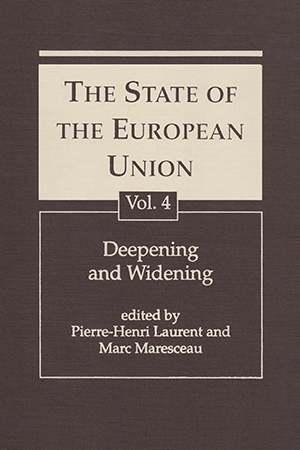The struggle between those who seek a more integrated, and even a federal, Europe and those proposing a looser confederation was once again highlighted at the 1996-1997 Intergovernmental Conference, and reflected in the IGC’s decisions. This fourth volume in the European Community Studies Association's biennial series examines the divisions within the EU in the key areas of the common foreign and security policy, European monetary union, enlargement, and structural reform.
Pierre-Henri Laurent is professor of history at Tufts University. Marc Maresceau is professor of European Community law and director of the European Institute at the University of Ghent, where he also holds the Jean Monnet Chair.
"An excellent read for anyone wanting to update his/her knowledge about any area of EU studies."—Amy Verdun, Journal of European Integration
"Should entice scholars of varying backgrounds to rummage through a text which seems to have every prospect of fulfilling its sponsor's aim of deepening our understanding of European integration."—Nick Hayward, Political Studies
"An indispensable overview of political and institutional issues faced by the European Union (EU) in the late 1990s. It is essential for any library collection on contemporary Europe."—Perspectives on Political Science
"The book is comprehensive in its detail and the authors are provocative in their critique of the various ways in which the integration process is developing. This volume is to be welcomed for its succinct policy appraisals and critiques."—David Edye, Journal of Common Market Studies








